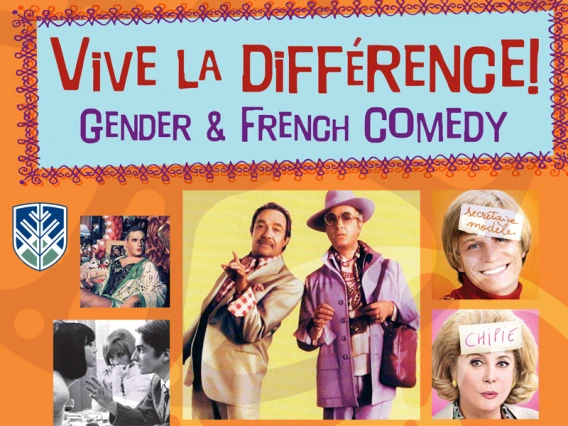
Dr. Alain-Phillippe Durand, Director of SILLC and professor of French at the UA, will be the keynote speaker at The NAU French Film Festival this year, which is jointly hosted by Cinema Studies and the French section of the Department of Modern Languages at Northern Arizona University. The festival spans three days from Wednesday, February 29 to Friday, March 2. He was invited by Dr. Astrid Klocke, Director of Cinema Studies at NAU.
The festival is conceived as a campus-wide event at Northern Arizona University. It is designed to support two programs: the French emphasis in the BA in Modern Languages, and the interdisciplinary Cinema Studies minor that complements majors in many fields including Communication, Comparative Cultural Studies, Ethnic Studies and Modern Languages. Like the University of Arizona, NAU offers many courses that are cross-listed in order to promote interdisciplinary studies.
Dean Wildner-Bassett and Professor Albrecht Classen have delivered lectures at NAU, and the UA Department of German has a long history of collaboration with NAU's German section, especially through the meetings of the Arizona chapter of the American Association of Teachers of German, which the UA, NAU, and ASU co-host on a rotating schedule. This is NAU's collaboration with the UA Department of French and Italian is the first of what participating units hope is many such collaborations. Dr. KIocke hopes "this film festival will build even more connections between the University's French programs for future events."
According to Dr. Durand, Exposure to film builds on a student's studies of their target language by contextualizing that language. "Film is a very powerful medium because it allows the students to connect actions and words with simultaneous images," says Dr. Durand. "While unfortunately many students do not like to read, all students enjoy watching films. Through film we can get them back to the reading, especially when it comes to film adaptations of literary works."
"Film is good for classes at any level, undergraduate or graduate," he adds.
The title of the film festival is Viva La Différence! Gender & French Comedy. "The French love comedy," says Durand. "It is by far the most popular of genres in France and has been so for a very long time. Think Molière or even La Farce de Maitre Pathelin in medieval times. In the history of the French box office of all times, in the top 10 films, the majority are comedies. The French love black humor, satire, and most of all the slapstick kind of comedy. This is why some Americans always had a hard time understanding why the French loved Jerry Lewis and found him so funny! There was even book written about that: Why the French Love Jerry Lewis."
The title of Dr. Durand's address is "Hliarious French Fellas: From The Waterer Watered to Welcome to the Sticks."
The Waterer Watered is known as the first film comedy ever, Dr. Durand explains. It was produced and directed by the Lumiere Brothers, and you can watch it on Youtube. Welcome to the Sticks is a French comedy that beat all records in the history of the French box office in 2008. Information about the film can be found online at IMDb.
Durand often teaches French Film. One such course, French 442: "French Narratives and Film: Non-Places in the Contemporary French Novel and Film," is an upper-division undergraduate course and is available most semesters. (See the full description here.) This seminar is based on Dr. Durand's first book, which was also his dissertation. The book takes French anthropologist Marc Augé's theories of the non-places and explores them in the contemporary French novel and cinema." If Hollywood has recently discovered the phenomenon – Steven Spielberg’s The Terminal, Sofia Coppola’s Lost in Translation, Jonathan Dayton and Valerie Faris’ Little Miss Sunshine, and Jason Reitman’s Up in the Air are representative examples – French and francophone novelists and filmmakers have been dealing with what French anthropologist Marc Augé calls “non- places” for more than thirty years."

